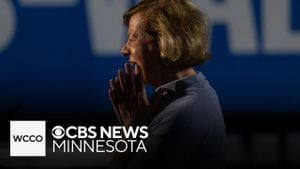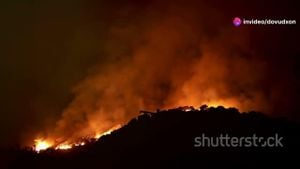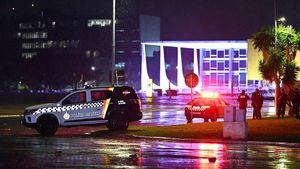Protests have erupted across Mozambique following the recent presidential elections, signaling mounting unrest and dissatisfaction with the ruling party's long-standing grip on power. The October 9 election, which saw the Frente de Libertação de Moçambique (Frelimo) party declaring Daniel Chapo the winner with approximately 70% of the votes, has faced sharp criticisms and allegations of fraud. Independent candidate Venâncio Mondlane, who claims he was the real victor, has emerged as the face of the opposition and is rallying widespread support for protests against the government.
On November 7, 2024, chaos ensued during one of the mass demonstrations called by Mondlane, resulting in the tragic deaths of at least five individuals, with 120 others injured. The protests were intended to draw attention to the alleged irregularities surrounding the elections, as well as to demand justice and transparency from the electoral process.
Mondlane, the presidential candidate from the Partido Otimista pelo Desenvolvimento de Moçambique (Podemos), asserted during protests: "We will protest at the borders, at the ports, and in the provincial capitals. All eleven provincial capitals... We will paralyze all activities so they understand the people are tired." He emphasized the need to restore election integrity and asserted the protests were not aimed at violently overthrowing the government.
The political turbulence has prompted international observers to voice concerns. Civil society groups estimate around 40 fatalities linked to security crackdowns amid the unrest, and local NGOs report significant economic ramifications, including market sell-offs and disruptions at Mozambique’s main port.
Protests have not only caused economic strife but have also seen significant police presence as state security forces respond with tear gas and, allegedly, live ammunition. Vienna, the capital city, has faced multiple roadblocks and heavy military presence, making it challenging for demonstrators to voice their grievances effectively.
On November 8, the situation escalated as the Minister of Defense warned of potential military intervention, expressing concerns about the rising threat to state stability. This sentiment was echoed by international observers who highlighted the precarious balance the country is currently experiencing.
The Southern African Catholic Bishops’ Conference extended their support for the Mozambican bishops, urging authorities to address the root causes of discontent among the populace, particularly election-related grievances. They stress the importance of respecting the democratic will of the people and called for greater transparency and accountability.
According to Cook, who reports on internal conflicts within African nations, the Frelimo party's tight control and the monopoly over the electoral process have led to this unrest, with many citizens increasingly disillusioned by years of unyielding governance.
Mondlane's calls for fresh protests have ignited national sentiment, including participation from various societal sectors such as labor unions and civic organizations. The coalition against Frelimo is reportedly growing, with rising calls for international support to remedy the political crisis.
International relations are also at the forefront of these protests, considering allegations made by Mondlane claiming the presence of Rwandan troops deployed to suppress the unrest. This development has led to denials from both the Rwandan government and the European Union, who both maintain no forces are active within Mozambique's borders.
Adding to the international intrigue, some analysts suggest the potential involvement of foreign governments indirectly influencing local stability. Reports of loan discussions from the EU with Mozambique to address economic concerns have raised questions about the use of financial assistance as leverage for political outcomes.
Crucially, the upcoming weeks will prove pivotal for Mozambique. The opposition demands for the Constitutional Council to recount the votes or call for new elections remain unaddressed, adding to widespread uncertainty.
These protests highlight the growing disenchantment with the current political climate, alongside the longsuffering economic struggles faced by many Mozambicans. With civil society increasingly involved and drawing attention to injustices, the question now is whether the government will heed these calls or continue to resort to heavy-handed tactics to quell dissent.
For supporters of Mondlane, the fight for democracy and justice continues, with fervent belief involving risks and sacrifices—a sentiment he personally conveyed: "The objective is not to take power by force, but rather to pressure the institutions to restore electoral justice." The outcome of these demonstrations may well determine the future political narrative of Mozambique and its path forward.



